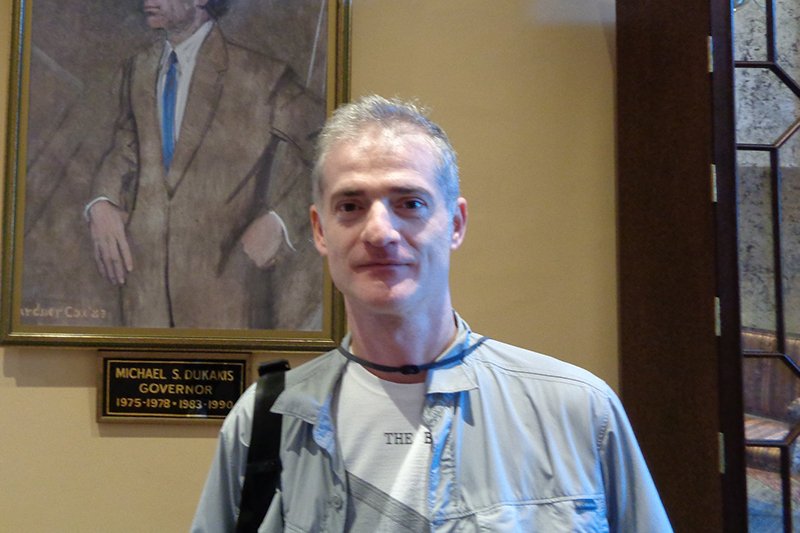Rama’s Mediating Role, Out of Question
"It would be a great surprise if Tirana plays a mediating role between the Turkish and Greek governments, because in principle any such mediating role would take place if only both Athens and Ankara have asked for, which, as far as we know, isn’t the case.†This was a revelation by Dr. Yorgos Christidis, Associate Professor at the University of Macedonia in Thessaloniki, during an interview with Albanian Daly News referring to some media reports that Albanian Prime Minister Edi Rama would be carrying a message from Ankara to Athens. “Athens and Tirana are in fact setting a positive example in the direction of improving Greek-Turkish relations, by agreeing to resolve one of their outstanding differences regarding the delimitation of their maritime zones,†said Dr. Christidis who is also research fellow at ELIAMEP.
According to him, the new US Administration under Joe Biden has raised expectations, particularly in Europe, for a return to the pre-Trump days of cooperation between the two sides of the Atlantic. “Such a return will certainly see greater coordination between the US and the EU in South-East Europe, including the Western Balkans, where its geopolitical inclusion into the West is still incomplete,†he said. In the meantime the Professor is of the opinion that further delay in the opening of the EU intergovernmental talks with Albania and North Macedonia would have political repercussions for both these countries, but in particular for Skopje where the government of Zoran Zaev made painful foreign policy compromises in the name of advancing North Macedonia’s Euroatlantic integration. “It is imperative for the talks to begin as they will provide a powerful, symbolic gesture that the EU is truly committed to the integration of the Western Balkans, thus, reinforcing the reformist drive in these societies.â€
As far as Greece is concerned, according to him, the inclusion of the Western Balkans into the EU remains a strategic interest and it will continue supporting it, as it serves regional stability and, thus, national interests.
Speaking of the Covid 19 epidemic Dr. Christidis said it has created a unique opportunity for the display of pan-European solidarity, that of course should not be limited in the EU area, but should also include regions like the Western Balkans, where economic reality makes it even more imperative to provide every possible assistance both in the direction of public health but also of socio-economic recovery. “In any case, it will be short-sighted to ignore the sheer geographic proximity of the Western Balkans to the EU, and not stand by the side of the countries of the region in fighting this great menace. I believe that many officials in Brussels understand that pretty much.â€
As Dr. Christidis is among the authors of a report on the broadening multilevel connectivity between Greece and North Macedonia in the post-Prespa environment which was launched on December 16, 2020, ADN asked him on main purpose of this report. “There is little doubt that the Prespa Agreement represents a milestone in the evolution of relations between Greece and North Macedonia, constituting a comprehensive framework for regulating bilateral relations, while at the same time, opening-up important opportunities for their further development. This however depends upon the political will of both governments to implement the agreement and take full advantage of the opportunities provided,†he said.
“Unfortunately, the legacy of the 1990s is still with us today in the sense of both unresolved disputes and a negative image of the Balkans elsewhere in Europe. We in the region must show that we are capable of solving those disputes, advancing a positive agenda for the whole region,†said Dr. Yorgos Christidis, Associate Professor at the University of Macedonia in Thessaloniki, in the following interview:
Albanian Daily News: 2021 has entered with dynamic developments in the Balkans burdened with the ongoing old conflicts. Do you think that the change of power at the White House will influence a new course and are there possibilities of an increased coordination of actions between the EU and the US in the region?
Dr. Yorgos Christidis: The election of the new American administration under Joe Biden has raised expectations, particularly in Europe, for a return to the pre-Trump days of cooperation between the two sides of the Atlantic. Such a return will certainly see greater coordination between the US and the EU in South-East Europe, including the Western Balkans, where its geopolitical inclusion into the West is still incomplete, making the region vulnerable to Russian and Chinese efforts to increase their presence and influence, a concern for both Washington and Brussels.
- An event in progress what happened in the capital of the US, at the Capitol, considered as the ‘cradle’ of democracy in the eyes of the world? In your opinion what is occurring in that country regarding the internal situation and its image in the world as even the closest allies have expressed shock?
- The recent events in Capitol Hill were undoubtedly shocking, reminding us of the dangers even advanced, consolidated democracies can face by populist politicians set on remaining in power by crossing every limit of acceptable behavior. Nevertheless, the crisis faced by the US underlined the strength of its institutions. American democracy will survive Trump.
American society and in particular the Republican Party will have to reflect hard, on the present crisis and find ways to deal with the roots of the political phenomenon called “Trumpismâ€.
- As I mentioned the EU above, let me Professor, touch upon the issue of the enlargement perspective which was mentioned in a three-line paragraph in the 36-page Program of the Portuguese EU Presidency which started on January 1 this year. Do you think that the delay of the opening of the intergovernmental talks of the EU with Albania and North Macedonia is harmful to both the candidate countries and the Union itself? For example Greece continues its push for speeding up the enlargement process?
- Further delay in the opening of intergovernmental talks would have political repercussions for both Albania and North Macedonia, and in particular the latter, where the government of Zoran Zaev made painful foreign policy compromises in the name of advancing North Macedonia’s Euroatlantic integration. It is imperative for the talks to begin as they will provide a powerful, symbolic gesture that the EU is truly committed to the integration of the Western Balkans, thus, reinforcing the reformist drive in these societies. And since the accession process is not going to be a short one, there will plentiful opportunities for any member-state to intervene in the process in case it feels that it has grounds to do so. Thus, in Bulgaria’s case, that claims it has justified concerns regarding the implementation by North Macedonia of the Treaty of Friendship, Good Neighborliness and Cooperation the two countries signed in August 2017, the protracted accession process will provide ample opportunities for defending its concerns. For Athens, the inclusion of the Western Balkans into the EU remains a strategic interest and it will continue supporting it, as it serves regional stability and, thus, national interests.
- Which is your assessment on the course of the resolution to the maritime border issue between Albania and Greece?
-There is little doubt that Albania’s EU integration process can facilitate the resolution of differences existing between Athens and Tirana. Thus, the time has come for the maritime border issue to be resolved, something that both governments seem to understand, as they have agreed to seek recourse to the International Court of Justice in Hague.
- PM Rama came to Athens (January 8) after a formal two-day visit to Turkey where among others a strategic partnership accord was finalized. Do you see any connection between the two visits to Athens and Ankara, and any eventual mediating role of Rama over the Greek-Turkish conflict?
-There have been media reports that PM Rama would be carrying a message from Ankara to Athens. Beyond that however, it would be a great surprise if Tirana would play a mediating role between the Turkish and Greek governments, because in principle any such mediating role would take place if only both Athens and Ankara have asked for, which, as far as we know, isn’t the case.
Athens and Tirana are in fact setting a positive example in the direction of improving Greek-Turkish relations, by agreeing to resolve one of their outstanding differences regarding the delimitation of their maritime zones.
- First days of 2021 have witnessed a further spread of the COVID -19 pandemic, but the vaccination which is underway in the EU and some other countries seems a ray of hope. But even this encouraging move in this fight leaves EU’s candidate countries in the waiting list. The initial moments of the outbreak of the pandemic are remembered as a dark page in history’s Union when the powerful members did not see beyond their yard, and the less powerful complained of lack of solidarity. Is the same thing happening when some countries have created large stocks of vaccines while others like Albania have not started vaccination, yet?
-I think you are right. The Covid 19 epidemic has created a unique opportunity for the display of pan-European solidarity, that of course should not be limited in the EU area, but should also include regions like the Western Balkans, where economic reality makes it even more imperative to provide every possible assistance both in the direction of public health but also of socio-economic recovery. In any case, it will be short-sighted to ignore the sheer geographic proximity of the Western Balkans to the EU, and not stand by the side of the countries of the region in fighting this great menace. I believe that many officials in Brussels understand that pretty much.
-Professor, you were among the authors of a report on the broadening multilevel connectivity between Greece and North Macedonia in the post-Prespa environment launched on December 16, 2020. Taking the opportunity of this interview, please could you share with ADN’s readers the main purpose of this report? Which have been its objectives and expectations?
-The report was the outcome of a common research project by two think tanks - ELIAMEP (Athens) and Analytica (Skopje) - with the financial support of the Swedish Ministry of Foreign Affairs, mapping the concept of connectivity between Greece and North Macedonia, following the signing and ratification of the Prespa Agreement. The report shows that that in some areas there has been delay in advancing the positive agenda set by the Prespa Agreement, whereas in others, like for example energy cooperation, there have been encouraging developments. Thus, during the last two years, Athens and Skopje have discussed ways of upgrading the interconnection of their electricity grids and of connecting North Macedonia with the TAP gas pipeline crossing northern Greece.
Such a development would reduce North Macedonia’s energy dependency upon Russia, while it would also bring the two states closer together. There is little doubt that the Prespa Agreement represents a milestone in the evolution of relations between Greece and North Macedonia, constituting a comprehensive framework for regulating bilateral relations, while at the same time, opening-up important opportunities for their further development. This however depends upon the political will of both governments to implement the agreement and take full advantage of the opportunities provided.
-And to conclude, Dr. Christidis, how much can this pattern of cooperation between Greece and North Macedonia be taken as an example for a more stable and peaceful Balkans?
-Unfortunately, the legacy of the 1990s is still with us today in the sense of both unresolved disputes and a negative image of the Balkans elsewhere in Europe. We in the region must show that we are capable of solving those disputes, advancing a positive agenda for the whole region. The Prespa Agreement constitutes such a positive step forward.














